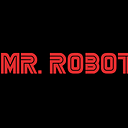Can Anyone Access My Data in Cloud Storage? Here’s What You Should Know
Cloud storage has many benefits. It keeps your data safe and secure, it provides remote access to information no matter where you are, and it backs up data automatically. However, it can be difficult to understand how cloud storage works. Can someone hack into your account? Can I use cloud storage on my laptop and my phone? How does encryption work?
This article will answer all of these questions for you! You’ll come out knowing everything there is to know about cloud storage.
What is cloud storage?
Cloud storage is any storage that is accessed over the internet. That means it’s available to be accessed, shared, and synchronized between devices.
Cloud storage can be shared between people, which may seem like a downside. But there are security measures in place to protect your data. You can use your own password or a fingerprint scan to keep your information safe.
Encryption is a way of encoding data so no one can access it without the key to unlock it. For example, your password might be the key to unlocking your account if you use a certain type of encryption.
How does encryption work?
Encryption is the process of encoding information in a way that prevents unauthorized parties from viewing it. The two main types are symmetric-key encryption and asymmetric-key encryption.
Symmetric-key encryption is the most common. It uses the same key to encrypt and decrypt data. Asymmetric-key encryption uses two different keys, one to encrypt the data and one to decrypt it.
So how does it work? Say you have a file with sensitive information. You can create a “lock” using a password. Anyone who knows the password can unlock the file, while those who don’t know it will be unable to open it. This ensures that sensitive information is only seen by those who should see it.
This type of encryption is used in most cloud storage services. So, if you’re worried about someone accessing your data, then you don’t need to be!
So, can anyone access my data in the cloud?
Data stored in the cloud is often protected by an encryption key, which is specifically for your account. This key is unique to your account and is used to encrypt your data. This means, in order to access any of your data in the cloud, you would need to know the encryption key.
That’s not the only way, though. Your account can also be protected by a password or by two-factor authentication. Either one of these two methods will also need to be used in order to access your data.
One of the most secure cloud storage, Internxt, uses military-grade encryption. All the data you store in Internxt is encrypted with AES-256. This means that the most powerful processor in the world would need twice the age of the universe to decrypt a small file.
everything you store is encrypted before leaving your device, making it impossible to decrypt without the user’s permission, even the company itself cannot access your files, photos or passwords.
Conclusion
In conclusion, you should consider cloud storage if you’re looking for a more convenient, practical, and cost-effective solution for your data storage needs. Whether you’re a small business or an individual, cloud storage is a good option to consider.
All of your data is encrypted and securely stored in a remote location. It’s accessible from any device and it’s backed up automatically. All of these benefits mean that cloud storage is more secure than traditional storage solutions.
Plus, cloud storage has many practical benefits that make it a viable option for most people. It’s easy to install on your laptop and it’s available on most devices. Also, you can download all of your files from anywhere with an internet connection which is another advantage to take into account.
Now that you know how encryption works I’m sure you are more aware of how important it is to store your data in a private and secure cloud. With the right tools you can be efficient while keeping your privacy and security standards high.
